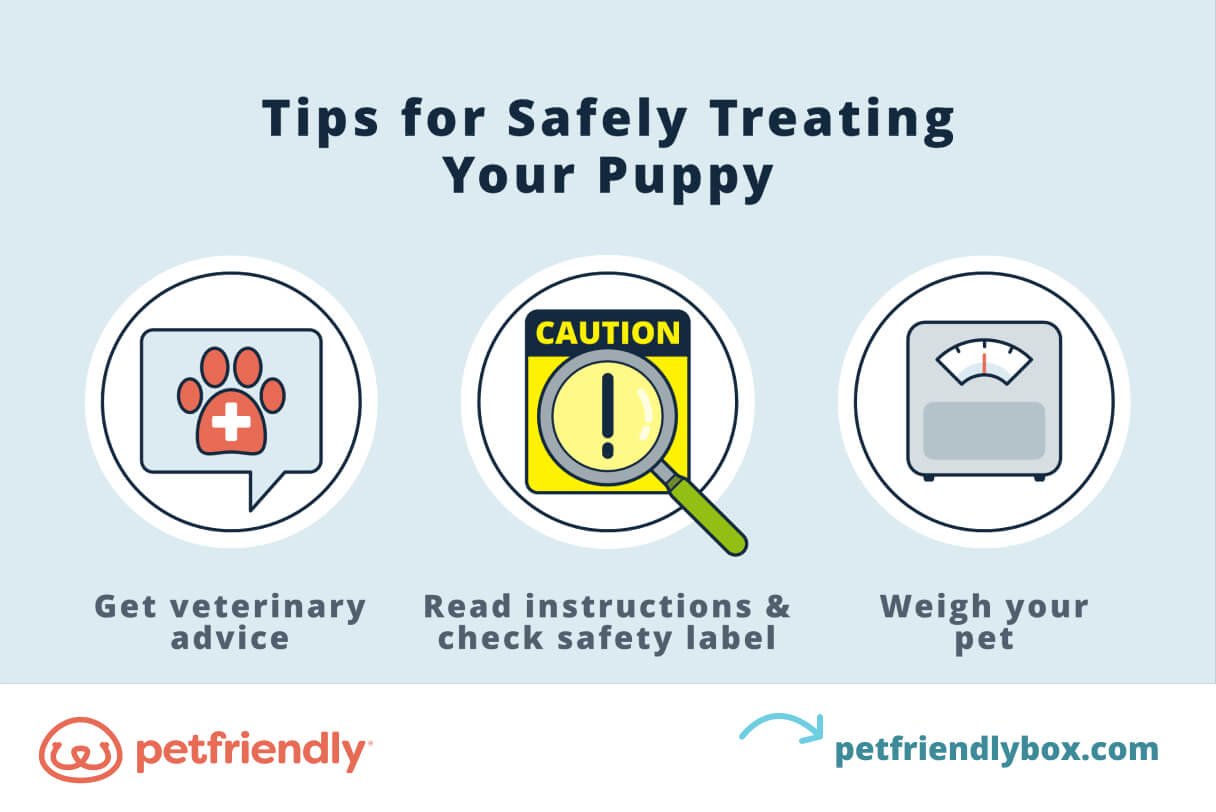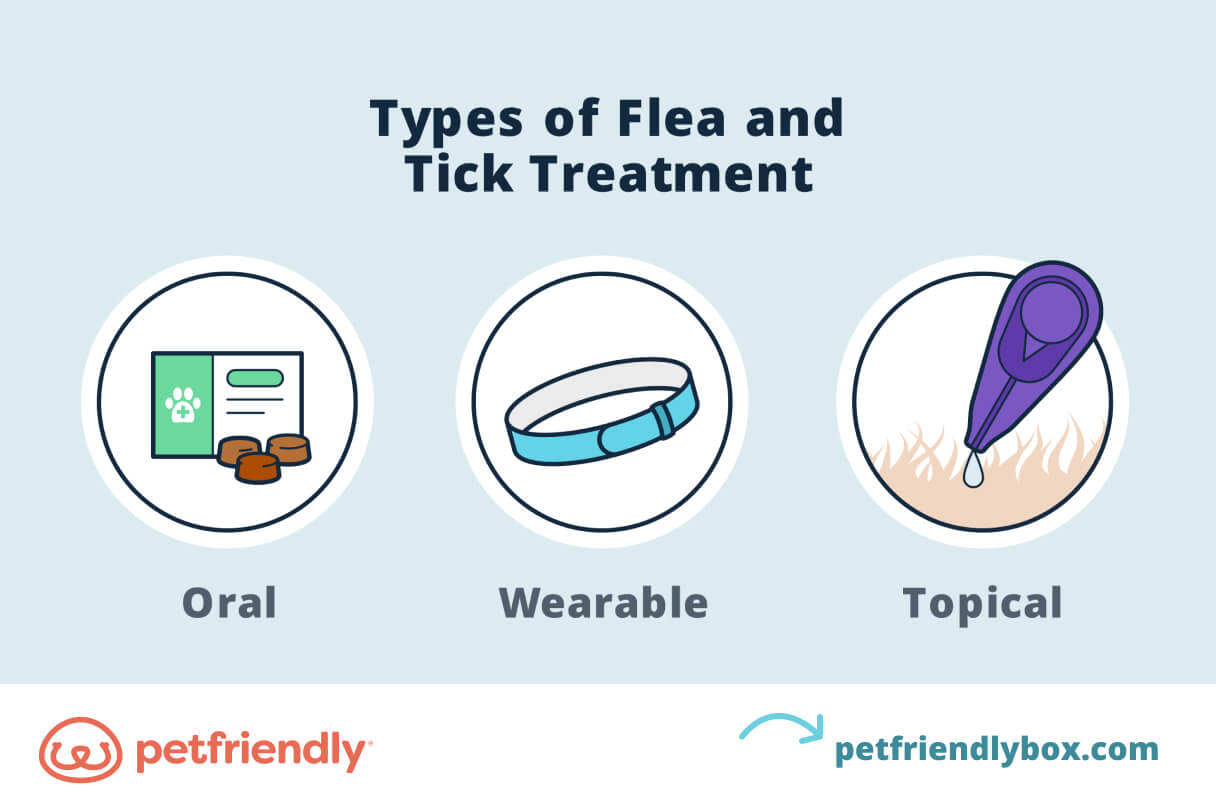Getting a new puppy or kitten is such an amazing experience. The puppy breath, the tiny noses, and sleepy cuddles. But, with every adorable quirk comes new responsibilities for pet parents. And the reality that you are now in charge of a small, living being.
You may not know where to start when it comes to taking care of a new puppy or a young kitten. But one thing is for sure, protecting them from fleas and ticks is important. And flea and tick preventive medication is a critical and necessary part of their livelihood.
In this article we'll cover:
- The importance of using flea and tick preventative for puppies (and kittens)
- When to start flea and tick prevention
- How to find the right treatments

The importance of flea and tick prevention
Keeping your puppy flea and tick-free is just one of many concerns in pet parenting. But why does it matter in the first place?
Fleas and ticks are some of the biggest threats to your pet's health. Both parasites carry dangerous diseases that dogs and cats can contract with a simple bite.
They can also cause irritation from their bothersome saliva and flea dirt. Flea dirt looks like black specks left behind on your pet's skin.
Dangerous Ticks

If you find a tick on your dog or cat beware. Ticks are small, 8-legged creatures that feed on the blood of animals. After feeding, female ticks will lay eggs on their host, starting the life cycle over again.
There are four common types in the United States including the Lone Star tick and the black-legged deer tick. Ticks can carry Lyme disease, Rocky Mountain spotted fever, and Tularemia.
Pesky Fleas

Fleas are parasites that also feed on the blood of animals. Their minuscule size makes them difficult to remove with even the sharpest flea comb.
Female adult fleas lay eggs and drop flea dirt that can remain dormant in your home year-round. The cat flea often carries Bartonella (cat-scratch disease) and flea allergy dermatitis (FAD).
Does my puppy need flea and tick prevention
Dealing with a flea infestation is annoying and hard to get rid of. This makes flea and tick prevention so important for pet owners.
Once your puppy or kitten is the appropriate age and weight to start flea and tick prevention, they should. Most flea and tick products are safe to use on young dogs and cats. But, be sure to read the instructions before treating your animal.

When to start using flea and tick treatment for puppies and kittens
The flea and tick protection that you find in stores and online typically has to pass high safety standards. Most products get tested for safety and efficacy.
These standards also determine the age and weight breaks that are the best for dogs and cats. But, depending on the treatment there are a few requirements for each species.
Can puppies have flea and tick medicine
Knowing when to start flea treatments for puppies can be tricky. Every flea and tick product has different requirements. But generally, puppies should:
- Be at least 7 weeks or 8 weeks old
- Weight at least 4 lbs
- Not have any pre-existing health issues
While your puppy might be old enough, you may need to wait until they are fully grown. This is especially true for smaller breeds like Chihuahuas and Dachshunds.

Here are some tips to safely treat your puppy:
- Get veterinary advice before choosing or starting treatment.
- Read the instructions fully and keep them on hand in case of emergency.
- Check the safety label — some treatments aren't safe for both dogs and cats.
- Weigh your pets to ensure they get the right amount of formula every time.
VET TIP
Not sure how much your dogs weigh? If you can lift your pet, step on a scale with your puppy in tow. Write down the number with your dog and then without and subtract to find their weight.
Can kittens have flea and tick medicine
Like a new puppy, kittens also need flea and tick treatments from a young age. But their requirements are a little different.
Kittens should:
- Be at least 7 or 8 weeks of age
- Weight at least 1.5 lbs
- Not have any pre-existing health issues
Most importantly, make sure the flea and tick medication you use is safe for cats. Some puppy flea and tick treatments contain the active ingredient Permethrin which is fatal to cats. Read the instructions and double-check the safety label before treating your cat.
VET TIP
If you use a topical solution and also have a dog, keep them separated for at least 4 hours. Or until the solution is dry.
How to find the right treatment for your puppy or kitty
Safe flea and tick control depends on your pet's age, weight, and health needs. Prevention is best for protecting your puppy from fleas and embedded parasites.
But as a pet parent, you ultimately have to do what is best for you and your puppy (or kitty). Search for a treatment that has these features and benefits:
| Features | Benefits |
|---|---|
| Is safe to use around other dogs and cats | Kills adult fleas, flea eggs, and flea larvae |
| Approved by the EPA or other safety entity | Kills ticks at all life cycle stages to prevent future tick infestations |
| Dosed according to your pet's age and weight | Repels parasites like mosquitoes, lice, ticks, and fleas biting your pets |
| Vet-quality or formulated by vets | Prevents flea eggs and larvae from hatching and reinfesting your pet |
| Easy to apply and remember | Protects from diseases like Rocky Mountain spotted fever |
| Long-lasting (4 to 12 weeks depending on the type) | Starts working within a few hours |
| Made with active ingredients that kill adult fleas and ticks | Provides coverage for the timeframe mentioned (ex: monthly, 4 weeks, 12 weeks) |
| A form factor you'll use consistently | Bonus: Covers other intestinal parasites like heartworm larvae |
Types of flea and tick treatment for puppies

There are a couple of types to choose from depending on your needs:
Topical flea treatments
Topical flea and tick preventives get applied to your cat or dog's coat. Topical flea treatment typically kills fleas and ticks and prevents flea life cycles from continuing on your dog and cat.
Flea shampoos are another form of topical flea and tick protection that helps you safely remove adult fleas. But, they won't take care of a future flea population from coming back.
Oral preventive medication
Chews, tablets, and pills are a convenient way to treat young puppies for fleas and ticks. Some even cover heartworm, roundworms, and hookworms.
If topicals aren't suitable for your pets, or you're looking for something with full coverage, oral treatment is a good solution. Keep in mind, some orals are prescription flea medications so you'll need to consult your vet.
Wearable protection
Collars, sprays, and flea dips are typically affordable options that kill fleas and prevent flea and tick infestations. They often last longer than some topical flea treatments that are effective for 4 weeks. Keep a flea comb on hand to remove a tick on your pet if needed.
If you're unsure about which type of treatment to start and when to begin administering, consult with your vet. Especially when at your pups' younger age.
Make sure they get an annual check-up to determine if further treatment is needed. Continued protection will help your dog or cat live a long and happy life.


